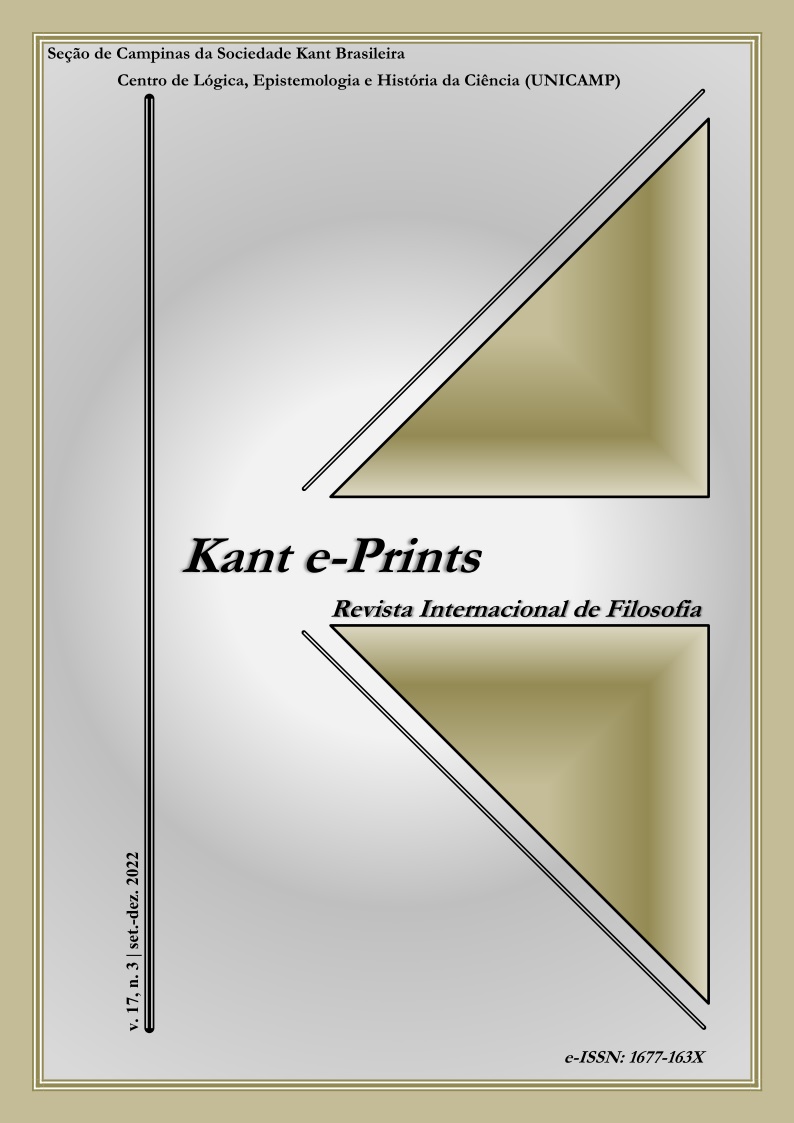Abstract
The main objective of this work is to analyze the consequences of Libet's experiments to Kant’s moral philosophy. Kant claimed that the freedom and autonomy of the will are the necessary principles of morality. From these concepts, he developed a procedure of moral inquiry capable of judging the correctness of our maxims, the Categorical Imperative. Benjamin Libet, - an American neuroscientist - performed experiments in which volunteers, monitored by an EEG (electroencephalogram) machine were instructed to move their hand/wrist when they felt like it. The results of this experiment revealed electrical changes in brain activity prior to activation of the muscle involved. This would indicate that the action started before the subject decided and became aware of it. Such conclusions would put in doubt the free will existence possibility. Faced with this new discovery, is it still possible to defend the moral philosophy of freedom, developed by Kant?
References
Caygill, H. (2000). Dicionário Kant (Á. Cabral, Trad., V. Rohden, Rev. técnica). Jorge Zahar Editor.
Coelho, J. G. (2014). Livre-Arbítrio e Relação Mente e Cérebro em Benjamin Libet. Principia, 18(1), 153–174.
Dall’agnol, D. (2019). Ética – História & Filosofia da Moral. FILOSOFIA/EaD/UFSC.
Kant, I. (2002). Crítica da razão prática (V. Rohden, Tradução com introdução e notas, baseado na edição original de 1788). Martins Fontes.
Kant, I. (2007). Fundamentação da Metafísica dos Costumes (P. Quintela, Trad.). Edições 70.
Libet, B. (1985). Unconscious cerebral initiative and the role of conscious will in voluntary action. Recuperado em 08 de abril de 2019, de https://www.cambridge.org/core/journals/behavioral-and-brain-sciences/article/unconscious-cerebral-initiative-and-the-role-of-conscious-will-in-voluntary action/D215D2A77F1140CD0D8DA6AB93DA5499
Nahra, C. (2013). Neuroética, Livre Arbítrio e Responsabilidade Moral: a neurociência não prova que o livre arbítrio é uma ilusão. Dissertatio, 38, 181–199.
Rohden, V. (2002). Finitude e autonomia. In I. Kant, Crítica da razão prática (V. Rohden, Tradução com introdução e notas, baseado na edição original de 1788). Martins Fontes.
Roskies, A. (2002, July 3). Neuroethics for the New Millenium. Neuron, 35, 21–23.

This work is licensed under a Creative Commons Attribution 4.0 International License.
Copyright (c) 2023 Júlia Aschermann Mendes de Almeida

